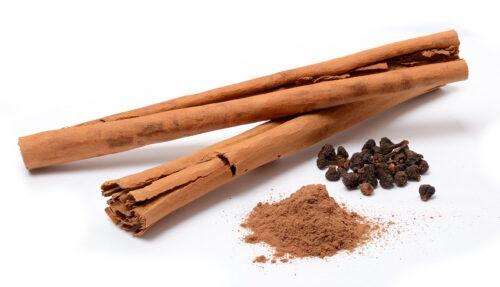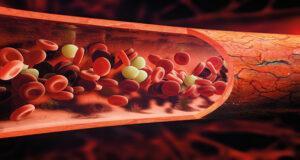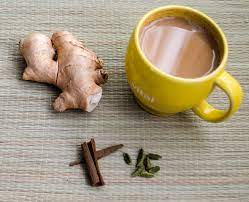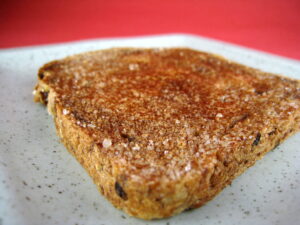
Benefits of Hibiscus
Hibiscus helped save our puppy We found a pedigree Golden retriever for sale for $50 in the local paper. At the time, they were selling

The benefits of cinnamon go far beyond its culinary applications as a spice.

Cinnamon is the brownish-reddish inner bark of the cinnamon tree. When dried, it rolls into a tubular form known as a quill. Cinnamon is available in either its whole quill form (cinnamon sticks) or as ground powder.
All types of cinnamon belong to the same family of plants, the Lauraceae family which include avocado and bay leaves.
Cinnamon is one of the oldest known spices. Mentioned in the Bible, it was used in ancient Egypt as a beverage flavoring and medicine. It was also employed as an embalming agent. It was highly treasured and considered more precious than gold!
Ceylon cinnamon is produced in Sri Lanka, India, Madagascar, Brazil and the Caribbean, while cassia is mainly produced in China, Vietnam and Indonesia.
Cinnamon is available in either stick, chips or powder form. While the sticks can be stored for longer, the ground powder has a stronger flavor. If possible, smell the cinnamon to make sure that it has a sweet smell, a characteristic reflecting that it is fresh.
Cinnamon should be kept in a tightly sealed glass container in a cool, dark and dry place. Ground cinnamon will keep for about six months, while cinnamon sticks will stay fresh for about one year stored this way. You can also extend their shelf life by storing them in the refrigerator.
Herbs and spices often contain antioxidants, compounds that can reduce your risk of developing heart disease. The benefits of cinnamon are thought to be from one of its antioxidant compound, cinnamaldehyde, which gives it that rich aroma and flavor and can also reduce inflammation.

A cinnamon study found that people on insulin therapy who took cinnamon supplements daily saw marked (and enduring) decreases. When people stopped taking the cinnamon, they saw some continuation of benefits — namely, the blood sugar levels remained lower than at the start of the test.
Participants in the same study above also had improved cholesterol and triglyceride levels in addition to lower blood sugar. A separate meta-analysis of 10 studies also found that daily cinnamon consumption led to a “statistically significant” decrease in total cholesterol, as well as LDL, or bad cholesterol.
Cinnamaldehyde (also called cinnamic aldehyde) has been researched for its effects on blood platelets. Platelets are constituents of blood meant to clump together under emergency circumstances (like physical injury) as a way to stop bleeding.
Under normal circumstances, they can make blood flow inadequate if they clump together too much. The cinnaldehyde in cinnamon helps prevent unwanted clumping of blood platelets by inhibiting the release of an inflammatory fatty acid called arachidonic acid from platelet membranes in addition to reducing the formation of an inflammatory messaging molecule called thromboxane A2.

Due to its ability to help stop the growth of bacteria as well as fungi, including the commonly problematic yeast Candida, cinnamon’s essential oils qualify it as an “antimicrobial” food. In laboratory tests, growth of yeasts that were resistant to the commonly used antifungal medication fluconazole was often stopped by cinnamon extracts.
Recent research demonstrates cinnamon can be used as an alternative to traditional food preservatives.
In a study, published in the August 2003 issue of the International Journal of Food Microbiology, the addition of just a few drops of cinnamon essential oil to 100 ml (approximately 3 ounces) of carrot broth, which was then refrigerated, inhibited the growth of the food borne pathogenic Bacillus cereus for at least 60 days.
When the broth was refrigerated without the addition of cinnamon oil, the pathogenic B. cereus flourished despite the cold temperature. In addition, researchers noted that the addition of cinnamon not only acted as an effective preservative but improved the flavor of the broth.
In addition to the active components in its essential oils and its nutrient composition, cinnamon has also been employed in energy-based medical systems, such as Traditional Chinese Medicine, for its warming qualities. In these traditions, cinnamon has been used to provide relief when faced with the onset of a cold or flu, especially when mixed in a tea with some fresh ginger.

Cinnamon is used in sweet and savory dishes. For example, you can put a cinnamon stick in warm apple cider to add flavor. Cinnamon and sugar or honey are also used together such as cinnamon toast, baked goods, and other desserts. You can simmer cinnamon sticks with almond milk and honey for a deliciously warming beverage. I put cinnamon in my partner’s morning coffee and on our oatmeal.

Cassia cinnamon has a glycoside, coumarin, that can be toxic if ingested in large amounts. It can cause liver injury. But it would be difficult to reach dangerous coumarin amounts through baking with cinnamon, taking too much of a dietary supplement — for example, a concentrated cinnamon pill — could potentially be toxic.
Adding cinnamon to your diet can add a little warming goodness to your life while improving your health!
Learn more about herbs and spices in our classes.
Teaching comprehensive holistic education since 1985.
We are currently offering interactive hybrid courses including Herbal Fundamentals, Energy Healing, Aromatherapy and Clinical Herbology
Hybrid means you may choose to participate in each individual class in the hybrid course online or in person.
All of our products are made with love from organic, all-natural and ethically sourced ingredients.
We began making and perfecting our own herbal remedies more than thirty years ago and offer our favorite products for purchase.

Hibiscus helped save our puppy We found a pedigree Golden retriever for sale for $50 in the local paper. At the time, they were selling
Hawthorn Berry Hawthorn is known as the heart herb for its many benefits as a heart tonic. The berry has been a key part of

Can you take herbal supplements to arm your immune system? You probably know that zinc, vitamin D and vitamin C are gotta-have-its. How about herbal

While attending San Diego State College in the early seventies, my work-study job was in the vivarium, a room for keeping and raising animals for